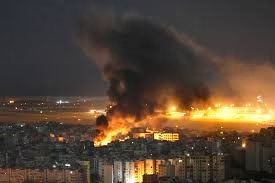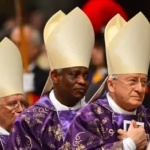The recent air strike launched by Israel on Beirut’s southern suburbs has significant implications for both Lebanon and Israel, highlighting the ongoing conflict between Israel and Hezbollah. The attack, which targeted a Hezbollah storage facility for precision-guided missiles, has increased tensions in the region and put pressure on the existing ceasefire agreement.
From Israel’s perspective, the strike was likely seen as a necessary measure to protect its security and civilians from potential threats posed by Hezbollah. The Israeli government has made it clear that it will not allow Hezbollah to grow stronger and considers the Dahiyeh neighborhood in Beirut a potential threat. However, this action has sparked concerns about regional stability and the potential repercussions for Israel’s security and relationships with neighboring countries.
The international community, particularly the United States and France as guarantors of the ceasefire, has a crucial role to play in preventing further escalation. The UN Special Coordinator for Lebanon has urged all sides to halt actions that could undermine the cessation of hostilities, citing panic and fear of renewed violence among civilians. The US and France must work together to pressure Israel to cease its attacks and facilitate meaningful dialogue between the parties.
The humanitarian impact of the conflict cannot be overstated. Civilians on both sides bear the brunt of the violence, with many forced to flee their homes or live in constant fear of attack. The Lebanese government has strongly condemned the strike, emphasizing the need for stability and security in the region. The attack has also caused significant damage to infrastructure and has had a devastating impact on the local population.
To achieve a lasting resolution, all parties must engage in meaningful dialogue and work towards de-escalation. This includes addressing territorial disputes, ensuring the safety of civilians, and fostering cooperation between nations. The international community must support efforts to rebuild and stabilize the region, providing humanitarian aid and promoting economic development.
In addition, the role of Hezbollah in the conflict must be addressed. While Hezbollah claims to be fighting for the rights of Palestinians and Lebanese, its actions have led to significant suffering for civilians in the region. The group’s militant activities have also drawn criticism from the international community, which views it as a terrorist organization.
In conclusion, the air strike on Beirut’s southern suburbs underscores the urgent need for a comprehensive and peaceful resolution to the Israel-Hezbollah conflict. Through diplomatic engagement, international cooperation, and a commitment to peace, there is potential to stabilize the region and improve the lives of those impacted by the ongoing violence. A lasting solution will require patience, persistence, and a willingness to address the root causes of the conflict.



